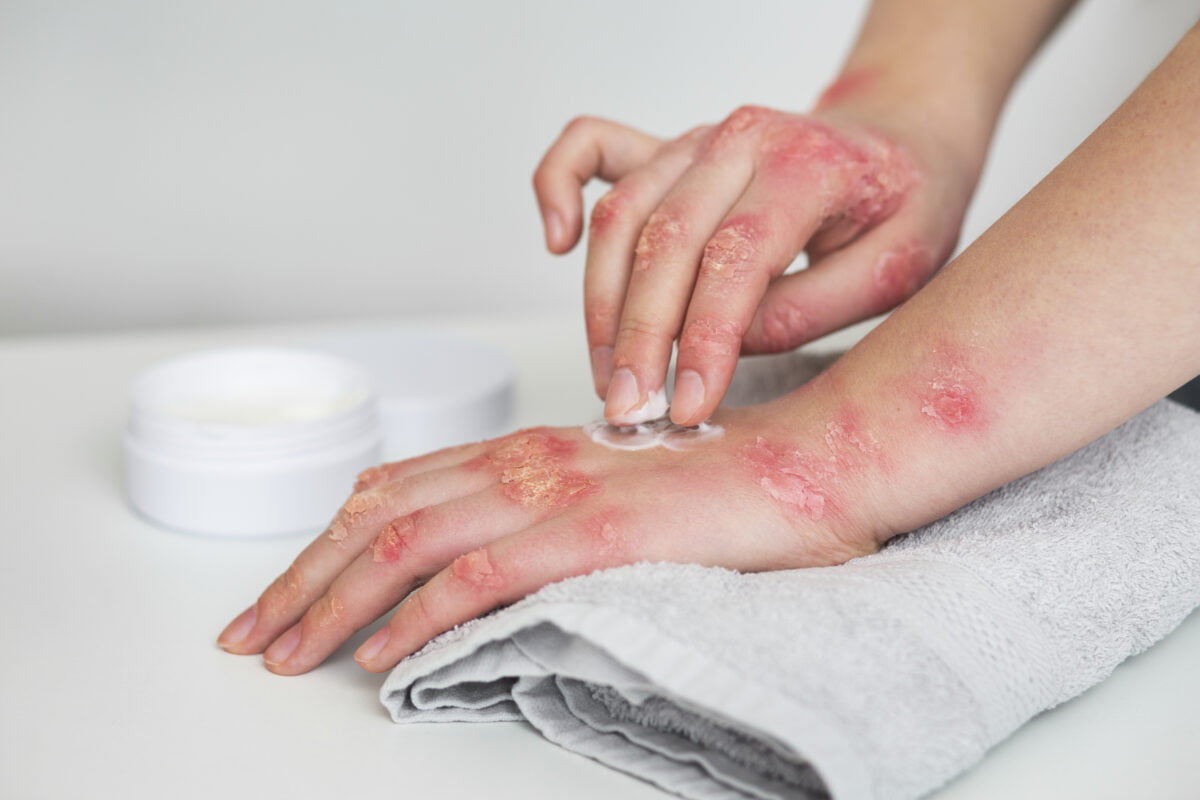Health
Autoimmune Skin Disease- Symptoms, Causes, and Treatments
The skin is the largest organ of the human body, and that’s why it’s more prone to autoimmune diseases.
Autoimmune diseases happen when your body attacks its healthy tissues instead of harmful cells. These diseases can affect different parts of the body, including the skin.
Let’s see how a low immune system or autoimmune disease disorder affects the skin, its symptoms and treatments.
Can Low Immune System Cause Skin Problems?
Skin is a central player in the immune system as different skin cells identify and kill foreign invaders like viruses and certain bacteria. These skin cells continuously communicate with other cells in the body. Meaning, any change in the immune system will also affect the skin, mainly when the immune system attacks our normal body parts.
In some cases, the skin is only affected by the immune system; however, the disorder can affect other body parts as well. As the skin is the visible organ of our body, it may be showing the first sign of a low immune system disorder.
Autoimmune Skin Conditions Symptoms
- Thickened, pitted, or ridged nails
- Pink or red rashes
- Scaly patches
- Stiff and swollen joints
- Itchy skin
- Chronic fatigue
- Blisters in the skin (with clear or milky fluid)
- Skin inflammation
- Skin scarring
- Dry, cracked skin that may bleed or itch
Causes of Autoimmune Skin Diseases
Why does autoimmune disease occur? It happens when our body’s immune system attacks its own healthy cells. Normally, our immune system produces antibodies against viruses, bacteria, and other foreign cells. If these antibodies attack healthy cells, they are known as autoantibodies. These autoantibodies sometimes also attack skin cells or tissues, and why this happens is still unknown.
However, various reasons can cause a low immune system such as excessive exposure to UV rays, infections, hormonal imbalance, stress, certain foods, and medications.
Types of Autoimmune Skin Conditions
Dermatitis Herpetiformis
Dermatitis herpetiformis is a chronic autoimmune disease that occurs in reaction to eating food containing gluten (a protein present in wheat and rye). This skin condition is related to Celiac autoimmune disease, which damages the intestine when you take gluten into your diet.
Dermatitis herpetiformis usually happens to people between 30 to 40 and shows signs such as extremely itchy blisters and red bumps on the knees, buttocks, elbows, and scalp.
Pemphigoid
Pemphigoid is a rare autoimmune disorder where blisters form in the skin. The most common pemphigoid is called bullous pemphigoid. This usually occurs in people above the age of 70.
Symptoms of bullous pemphigoid include itchy, firm blisters on any area of the skin, including the genitals and the mouth.
Psoriasis
A very common autoimmune skin disease that affects about 3% of adults in the U.S. In this condition, patches start growing on the skin too quickly.
The most common type of psoriasis is called plaque psoriasis where red patches with thick white scales usually form on the elbows, knees, lower back, and scalp.
Treatments for Autoimmune Skin Diseases
- Rituximab targets specific parts of the immune system and reduces inflammation. It involves regular physician monitoring.
- Immunosuppressive and immunomodulatory medications- The intake of these medications changes the immune system response as well as control the inflammatory effects of the autoimmune disease.
- Intravenous immunoglobulin involves a purified blood product containing healthy antibodies. This treatment reduces or prevents the severity of infections in people with a weak immune system. Intravenous immunoglobulin therapy also neutralizes antibodies attacking the person’s body. It may require repeat infusions.
The Bottom Line
Autoimmune diseases can affect the skin and show different symptoms such as red rashes, scaly patches, and itchy skin. It’s advised to see your physician for the proper diagnosis and treatment of autoimmune skin conditions.

